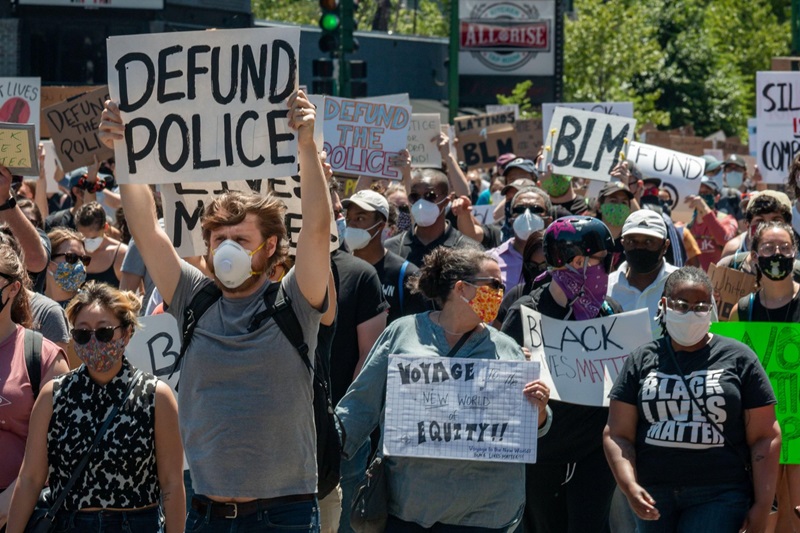
In 2019 I wrote a year-end review piece in another publication asking if antagonism toward the police would subside. That was five months before the death of George Floyd, and just weeks before COVID started hogging the headlines. So, 2020 was obviously not our year. To quote myself in reference to that season: “We thought those in their ivory towers writing theses about abolishing the police would be scoffed into oblivion, then defunding became a reality. We thought we had all of the protections and weapons to control civil unrest, then we were castrated by our leaders. We thought surely rebellion would not happen to our beloved agency, then we found insults on our meal receipts and spit in our drinks. Our “enemies” became our government leaders, our funders, and many who once begged us to be in their schools and neighborhoods. Our coffee oases became dangerous. The bikes we rode and the cars we drove were boycotted because cops used them.”
So here we are closing in on another year’s retrospection. Can we be optimistic yet? Has the pendulum of anti-police rancor reached its highest arc? Some recent headlines might give us hope.
The Texas House of Representatives has passed a set of laws that empower local law enforcement to enforce border breeches. “Texas has every right to secure our border and protect ourselves,” said state Rep. David Spiller, R-Jacksboro, a sponsor of one of the bills. “As Texans, we have to protect Texas especially when the federal government will not do so.” The bill has been sent to the Senate after rancorous debate. “Ultimately much more work is needed to secure our border against the hundreds of thousands of illegal crossings each month,” Texans for Strong Borders, a nonprofit conservative advocacy group, said in a statement.
Since the flood from the southern border has been diverted to urban areas, especially where so-called sanctuary cities have been declared, the pressure to control border security to reduce related crime and terror risk in this election year may lead to necessary changes from Washington, D.C.
A 2022 article from CNN is headlined “Once nicknamed ‘Murderapolis,’ the city that became the center of the ‘Defund the Police’ movement is grappling with heightened violent crime. A January 2023 article in the StarTribune news headlined that violent crime declined in Minneapolis last year, but rates are still well above the norm. Just this week the city reported that since losing 40% of its police officers it is five million dollars over its overtime budget. Public Health and Safety Committee Chair LaTrisha Vetaw said she was suffering “sticker shock” from the police department’s request for adding $5 million to next year’s overtime and event staffing budget, but “The reality is that’s where we are in Minneapolis. We’re paying to have officers on the street,” she said.
In our nation’s capital Mayor Muriel Bowser has introduced legislation to roll back some of the police reform measures that have hamstrung law enforcement amid rising crime in Washington, D.C. The Comprehensive Policing and Justice Reform Amendment Act of 2022 created “changes that “just don’t match the daily practice of safe and effective policing,” Bowser said. Acting Chief Pamela Smith agrees that reforming the reform measures is needed, after seeing a 39% increase in violent crime over the previous year.
While stating that the previous measures were “well-intended”, the Chief said they jeopardized public safety, were overly broad, and created “…situations where officers are kind of hesitant to go hands-on to apprehend an individual when it is appropriate. It has created circumstances where officers’ credibility has been called into question due to incidental contact.”
It is tragically sad that murder, mayhem, and money are finally driving public opinion back to the need for law enforcement, but this is exactly what most cops predicted.